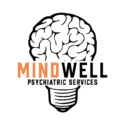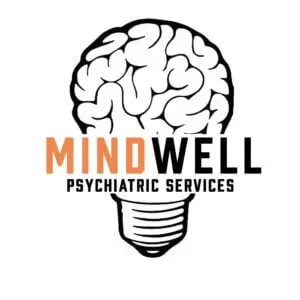Medication vs Therapy: Battle of the Titans for Mental Wellness
When it comes to medication vs therapy, which approach works best for mental health? At Mindwell Psychiatric Services, we help people navigate this important decision every day. Let’s explore the strengths of both options and discover how they can work together to bring balance to your mental wellness.
Understanding Mental Health
Mental health isn’t just the absence of illness. Instead, it’s about emotional well-being and resilience. It’s as crucial as physical health and affects every aspect of your life, from relationships to work. Therefore, the first step is recognizing that mental health matters.
Mental health issues are more common than you might think. According to the National Institute of Mental Health (NIMH), approximately one in five adults in the United States experiences mental illness in a given year. These conditions can range from anxiety and depression to bipolar disorder and schizophrenia. Furthermore, the impact of mental health on daily life cannot be underestimated. It affects how we think, feel, and act, influencing our relationships, work performance, and overall quality of life.
The Role of Medications in the Medication vs Therapy Debate
Now, let’s meet the first contender in our medication vs therapy comparison: medications. Mental health medications fall into several categories, including antidepressants, antipsychotics, mood stabilizers, and anti-anxiety drugs. These medications target specific neurotransmitters in the brain to regulate mood, anxiety, and other emotional factors. Medication management ensures you receive the right treatment for your needs.
Antidepressants
First, antidepressants primarily treat conditions like depression and certain anxiety disorders. They increase the availability of certain neurotransmitters, such as serotonin and norepinephrine, in the brain. Common examples include SSRIs (Selective Serotonin Reuptake Inhibitors) like Prozac and Zoloft.
Antipsychotics
Second, antipsychotic medications manage symptoms of conditions like schizophrenia and bipolar disorder. They help control hallucinations, delusions, and disorganized thinking by affecting dopamine receptors in the brain. Examples include Olanzapine and Risperidone.
Mood Stabilizers
Third, mood stabilizers primarily treat conditions like bipolar disorder to help regulate mood swings. Lithium and Valproic acid are commonly prescribed mood stabilizers.
Anti-Anxiety Drugs
Finally, medications like Benzodiazepines (Xanax, Valium) treat anxiety disorders. They enhance the calming effects of GABA, a neurotransmitter that reduces brain activity.
When Medications Work Best
Practitioners often prescribe medications for conditions where there is a clear chemical imbalance in the brain. They can provide rapid relief from symptoms and prove especially useful in cases of severe depression, acute anxiety, or when there’s a risk of self-harm.
However, it’s important to note that medications aren’t a one-size-fits-all solution, and their effectiveness varies from person to person. Some individuals may experience side effects, which can range from mild to severe. Common side effects include nausea, weight gain, dizziness, and sexual dysfunction. Therefore, it’s crucial to work closely with a mental health practitioner to find the right medication and dosage for your specific needs.
The Power of Therapy in the Medication vs Therapy Discussion
Now, let’s turn our attention to the second warrior in our medication vs therapy battle: therapy. Therapy, also known as psychotherapy or counseling, involves talking to a trained mental health professional who can help you manage your thoughts, emotions, and behaviors. Unlike medications, which primarily target the brain’s chemistry, therapy focuses on understanding and changing patterns of thought and behavior.
Therapists use various approaches and techniques depending on the individual and their specific needs. A psychiatric evaluation helps determine which approach works best for you.
Cognitive-Behavioral Therapy (CBT)
First, CBT is a widely practiced therapy that helps individuals identify and change negative thought patterns and behaviors. It effectively treats conditions such as depression, anxiety, and phobias.
Talk Therapy
Second, talk therapy is a general term for therapeutic approaches that involve open discussions between the therapist and the client. It proves particularly helpful for individuals who need to express their feelings and thoughts in a safe, non-judgmental environment.
Dialectical-Behavior Therapy (DBT)
Third, DBT often treats borderline personality disorder and helps individuals regulate emotions and improve relationships.
Interpersonal Therapy (IPT)
Finally, IPT focuses on improving interpersonal relationships and communication. It effectively treats conditions like depression.
When Therapy Works Best
Therapy benefits a wide range of mental health conditions and concerns. It provides individuals with the tools and coping strategies needed to manage their emotions, improve communication, and enhance their overall quality of life. Therapy proves particularly valuable when there’s a need to explore the underlying causes of distress or when developing new ways of thinking and behaving becomes essential.
Combining Forces: The Best of Medication vs Therapy
Here’s the secret in the medication vs therapy debate: they aren’t adversaries. Instead, they’re a dynamic duo. They can team up to create a comprehensive treatment plan. Medications provide immediate relief, while therapy equips you with long-term strategies for managing your mental health.
For example, consider someone with severe depression. Medication may help alleviate the most crippling symptoms, such as overwhelming sadness and physical fatigue. Simultaneously, therapy can address the root causes of the depression, helping the individual identify and change negative thought patterns that contribute to their emotional distress.
This combination approach often produces the best results for individuals facing complex mental health challenges. It’s like using both a fire extinguisher (medications for immediate relief) and a fire prevention plan (therapy for long-term well-being) to protect your mental health.
Seeking Help from a Mental Health Practitioner
Now that we’ve explored both sides of medication vs therapy, you might wonder how to navigate this complex terrain. This is where a skilled mental health professional comes into play.
A mental health practitioner specializes in the diagnosis, treatment, and prevention of mental illness. They have extensive training in both the use of medications and various forms of therapy. Here’s how they can help:
Assessment and Diagnosis
First, a mental health practitioner acts like a detective for your mind. They carefully evaluate your symptoms, medical history, and any underlying factors to provide an accurate diagnosis. This clarity forms the foundation of your treatment plan.
Medication Management
Second, if medications form part of your treatment plan, a mental health practitioner can prescribe and monitor them. They adjust dosages, address side effects, and ensure you receive the most effective treatment.
Therapeutic Guidance
Third, mental health practitioners understand various therapeutic approaches. They can provide therapy themselves or collaborate with therapists to ensure you receive the right type of therapy for your condition.
Holistic Treatment
Furthermore, psychiatry isn’t just about medications and therapy. Mental health practitioners consider your overall well-being, including physical health, lifestyle, and social factors that may impact your mental health.
Finding the Right Practitioner
Finding the right mental health practitioner is a critical step in your journey to mental wellness. Consider these tips:
- Ask for recommendations from your primary care physician, therapist, or friends and family
- Check credentials to ensure the practitioner has proper licensing and certification
- Ensure you feel comfortable and can communicate openly with your practitioner
- Consider the location and availability of the practitioner’s office
- Verify insurance coverage or affordable payment options
Remember that seeking help from a mental health practitioner demonstrates strength, not weakness. They guide you, provide expert care, and support you on your journey to wellness.
Conclusion: Finding Your Path in Medication vs Therapy
In conclusion, the medication vs therapy debate has no one-size-fits-all answer. The best approach depends on your unique circumstances and the nature of your mental health challenge. Remember, reaching out for help shows strength, not weakness. Whether you choose medications, therapy, or a combination of both, you take a courageous step toward a healthier, more balanced life.
In the end, it’s not a battle for supremacy. Instead, it’s about finding the right tools to help you regain control of your mental well-being. Therefore, contact Mindwell Psychiatric Services today to explore your options. Your path to wellness is unique, and we’re here to support you every step of the way.
According to the American Psychological Association, research shows that combining medication and therapy often produces better outcomes than either approach alone for many mental health conditions.





